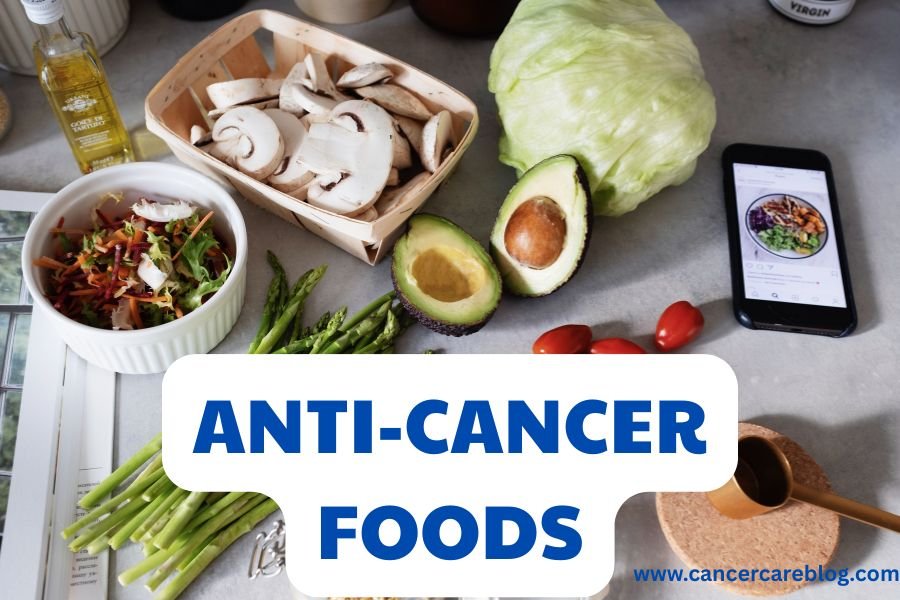Eating healthy is important for everyone. But if you or someone you love is fighting cancer, food can play an even bigger role. Certain spices and foods may help protect your body and support cancer treatment. But which ones really work?
Let’s explore some of the best anti-cancer spices and foods, backed by science, that you can add to your diet.
Why Focus on Anti-Cancer Foods?
Cancer cells grow uncontrollably and spread through the body. Certain foods contain natural compounds that can help fight cancer cells or reduce inflammation that encourages cancer growth.
Eating a healthy diet rich in these foods won’t cure cancer by itself. But it can support your body, improve your immune system, and may reduce the risk of some cancers.
Top Anti-Cancer Spices
1. Turmeric
Turmeric contains curcumin, a powerful anti-inflammatory and antioxidant. Curcumin has been studied for its ability to stop cancer cell growth and even cause cancer cells to die.
Research suggests turmeric may help in cancers like breast, colon, and pancreatic cancer.
Tip: Add turmeric to soups, rice, or teas. Pair it with black pepper to improve absorption.
2. Garlic
Garlic has sulfur compounds like allicin that may prevent cancer by blocking harmful substances and boosting immune function.
Studies link garlic consumption with lower risks of stomach, colorectal, and prostate cancer.
Tip: Use fresh garlic in cooking or as a flavor base for sauces and dressings.
3. Ginger
Ginger contains compounds called gingerols and shogaols that have anti-inflammatory and antioxidant effects. Some lab studies show ginger can slow cancer cell growth.
It may help with nausea from chemotherapy too.
Tip: Add fresh ginger to teas, stir-fries, or smoothies.
4. Cinnamon
Cinnamon is rich in antioxidants and has been studied for its anti-cancer effects. Some research suggests it may slow the growth of cancer cells in the lab.
Tip: Sprinkle cinnamon on oatmeal, coffee, or baked goods.
Best Anti-Cancer Foods
1. Cruciferous Vegetables
Broccoli, cauliflower, Brussels sprouts, and cabbage contain compounds called glucosinolates that help detoxify carcinogens and protect cells from DNA damage.
Studies link these veggies to a lower risk of lung, colorectal, and breast cancer.
Tip: Steam or roast these vegetables to keep their nutrients intact.
2. Berries
Blueberries, strawberries, raspberries, and blackberries are packed with antioxidants like anthocyanins that protect cells from damage.
Berries may also reduce inflammation and slow tumor growth.
Tip: Enjoy fresh or frozen berries as snacks or in yogurt.
3. Leafy Greens
Spinach, kale, and Swiss chard provide vitamins, minerals, and antioxidants that support your immune system.
Some studies suggest they may reduce the risk of certain cancers, including breast and lung cancer.
Tip: Add leafy greens to salads, smoothies, or soups.
4. Tomatoes
Tomatoes are rich in lycopene, an antioxidant studied for its role in lowering prostate cancer risk.
Cooking tomatoes increases lycopene availability, so sauces and soups are great options.
Tip: Use tomato sauce or fresh tomatoes in meals daily.
How Do These Foods Work?
The key is the natural compounds in these spices and foods. They can:
-
Fight free radicals: harmful molecules that damage DNA and lead to cancer.
-
Reduce inflammation: chronic inflammation can promote cancer growth.
-
Boost immune response: helping your body identify and destroy cancer cells.
-
Prevent blood vessel growth: tumors need blood supply; some compounds block this process.
Can Diet Replace Cancer Treatment?
No. While these foods are powerful, they are not a replacement for medical treatment. Always follow your doctor’s advice and treatment plan.
However, a diet rich in anti-cancer foods can improve overall health, reduce side effects of treatments, and help prevent recurrence.
Tips to Include Anti-Cancer Foods Daily
-
Add turmeric and black pepper to soups and curries.
-
Use fresh garlic and ginger in cooking.
-
Eat a variety of colorful fruits and vegetables daily.
-
Snack on berries or nuts instead of processed snacks.
-
Replace some meat with plant-based meals featuring beans and greens.
Final Thoughts
Science supports the benefits of many spices and foods in cancer prevention and care. Adding these natural ingredients to your diet is a simple, enjoyable way to support your health.
Always talk with your healthcare team before making major changes to your diet, especially during cancer treatment.



